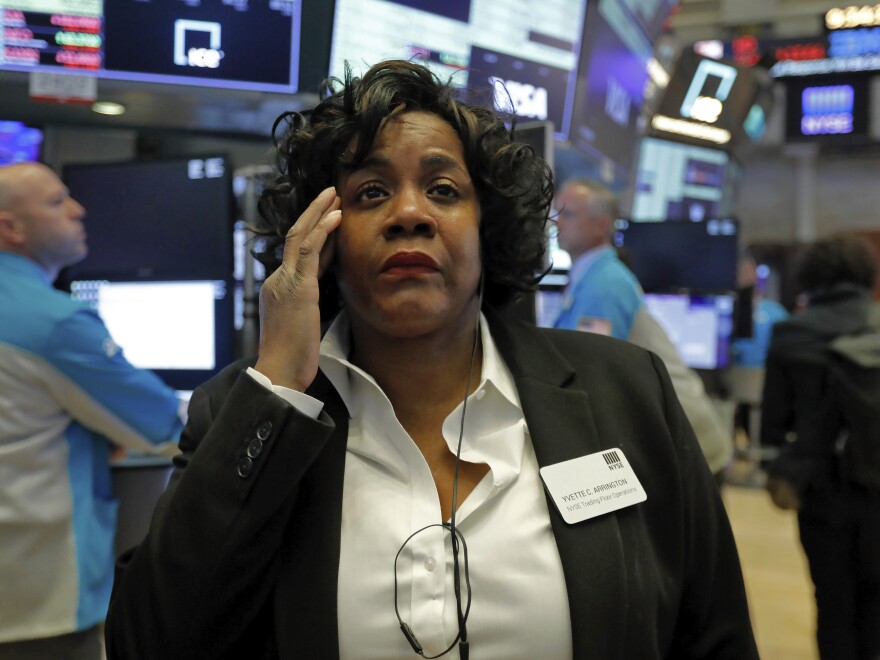No one predicted what a tumultuous, stomach-churning year 2020 would be for the stock markets. And few foresaw how well it would end up.
Here are the highlights:
Stocks in meltdown
Between Feb. 12 and March 23, the Dow lost a stunning 37% of its value.
On March 16 alone, the Dow plummeted nearly 3,000 points, losing 12.9%, as investors worried about the prospect of economic destruction wrought by COVID-19. The drop in stock prices was so large and so swift that it triggered multiple trading halts that day. In fact, the New York Stock Exchange suspended trading several times during those days.
The worst-hit stocks were those affected by the travel restrictions, such as cruise lines, air carriers and energy companies. United Airlines stock fell to $24 in March after selling for $86 a share on Jan. 1.
Historic recession
It was a chilling time for investors, when the bottom seemed to be falling out of the global economy. Some 22 million jobs were lost in April and May in the United States as businesses were forced into lockdown mode.
"The scope and speed of this downturn are without modern precedent, significantly worse than any recession since World War II," Federal Reserve Chair Jerome Powell said on March 13.
Then a dramatic rebound
Then something surprising happened: The stock market rebounded. With a vengeance.
Throughout the summer and fall, prices began to creep up again, and by Aug. 18, the Standard and Poor's 500 was hitting records again. And the Dow crossed 30,000 for the first time ever on Nov. 24.
"It's a sacred number, 30,000," President Trump said at the White House. "Nobody thought they'll ever see it."
Even with all the tumult, the Dow finished the year up 7.2%, and the S&P 500 did even better, gaining 16.3%. Meanwhile, the Nasdaq composite index, which is dominated by hot technology stocks, soared by a whopping 43.6%.
Congress, Fed and Treasury to the rescue
What on earth was going on?
The Federal Reserve, the Treasury Department and Congress took quick, decisive action to support the economy during the worst of the meltdown.
Congress approved supplemental unemployment benefits and $1,200 stimulus checks that helped many of the hardest-hit Americans pay their rent and keep food on the table. And the U.S. Treasury got those checks out quickly.
The Fed cut interest rates to near zero, and then stepped in with a broad $2.3 trillion package of lending programs to prop up households, employers, financial markets and local governments.
"We are deploying these lending powers to an unprecedented extent [and] ... will continue to use these powers forcefully, proactively and aggressively until we are confident that we are solidly on the road to recovery," Powell said in April.
All this sent a message to the financial markets: The Fed isn't about to let you go under. Buoyed by those assurances, investors began dipping their toes back in the water.
Tech bonanza
Initially, much of the market's gains were driven by a few hot tech stocks, such as Amazon and Netflix, which benefited from the lockdowns, as online shopping took off and people who were stuck at home streamed plenty of movies.
Netflix ended the year nearly 64% for the year, Amazon more than 70%.
"In terms of the broad economic changes, these companies are on the right side of history," says Lu Zhang, a professor of finance at the Fisher College of Business at Ohio State University.
Tesla's wild ride and a new centibillionaire
But few stocks exploded in value as much as the electric-car maker Tesla, which rose more than 700% this year, eventually getting added to the S&P 500. Even founder Elon Musk, whose Tesla shares were worth so much he became a newly minted centibillionaire, complained in May that the price was too high.
In fact, the stock market gains this year have made the rich a lot richer at a time when tens of millions of people are still struggling without jobs, and they have exacerbated the country's wealth gap.
Generation homebound and trading
Some part of the rebound — there's debate about how much — was due to the explosive rise in online trading, with homebound investors filling their hours buying and selling stocks.
Online brokerage companies such as Fidelity and Charles Schwab saw massive increases in trading volume.
Then there was the stock trading app Robinhood, with its 13 million customers, many of them young people with little experience trading. And many are especially attracted to high-gloss tech stocks such as Apple and Microsoft.
These superstar tech stocks helped send the overall market higher. Apple's market share even hit $2 trillion in August.
Copyright 2021 NPR. To see more, visit https://www.npr.org.




